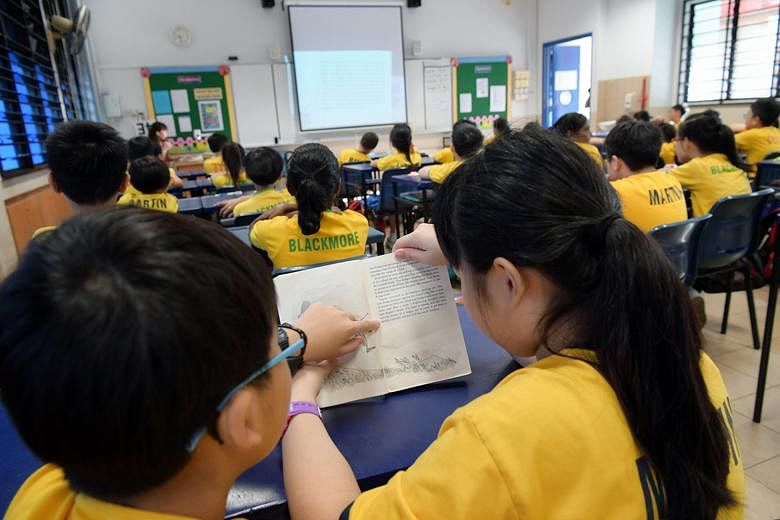SINGAPORE - Children in Singapore are among the top readers in the world, a recent study has found.
They are adept not only in understanding text in print, but also do well in navigating online material, according to the latest results of the Progress in International Reading Literacy Study (PIRLS) released last month.
They are capable of higher-order reading skills, with a significant number of them being able to assess complex literary story plots and interpret non-fiction texts.
Singapore has gone from being ranked No.4 out of 45 education systems in 2011 to being second out of 58 territories, in terms of how well students read.
Experts say Singapore students are better readers than before because of factors such as being surrounded with more reading material, with greater access to the Internet.
Also, as Assistant Professor Loh Chin Ee, an expert in reading from the National Institute of Education, said: "Generally, our literacy rate is high, and as parents become more educated, more of them are spending time reading with their children at home."
Many believe in reading and talking to their babies long before they utter their first words, as research has shown that this boosts development in language and cognition.
Dr Loh also noted that the Ministry of Education revises the English language syllabus every 10 years to ensure it is up to date with the relevant literacy skills.
For instance, in the past decade, schools have placed greater emphasis on communication skills, understanding how the English language is used in a wide range of text types and getting pupils to be more confident in speaking in front of others.
These strategies have contributed to the development of stronger literacy skills among students here.
One encouraging finding is that 81 per cent of the 10-year-old pupils who took part in the PIRLS background questionaire said they like reading.
But reading habits change with competing demands, which may explain why some read less as they get older.
A National Arts Council survey on reading in 2016 found that older people here read less than those in their teens, 20s and 30s.
Instead of focusing just on proficiency, experts say more attention can be paid to the affective side of building literacy, such as motivating students to be readers, and letting them read according to their interests.
Said Dr Loh: "We need to create an environment for reading. We're good in instruction and curriculum, but there are other areas for improvement - in the design of spaces to encourage reading, to recommending books to students."
Pupils who are weaker academically, in particular, need to also enjoy reading so they have more reason to continue the habit.
If a person enjoys reading, he is more likely to keep on picking up books - and all sorts of other reading materials - even as an adult, contributing to a society that is not just proficient in a language but can also use it to understand and construct the world around it.


